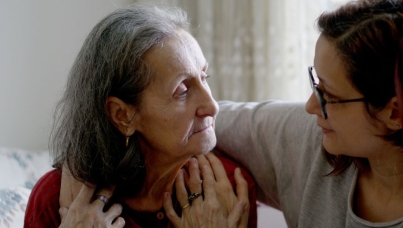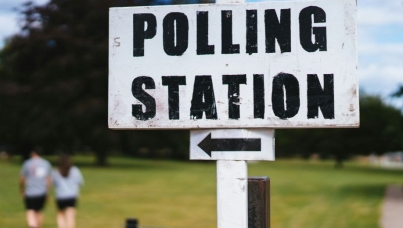6 in 10 parents support teachers going on strike – 1 in 5 oppose
- 60% of parents / guardians and 48% of Britons, support teachers taking strike action, the third most supported profession from a list of 8, behind nurses and ambulance workers.
- Around 4 in 10 parents / guardians are concerned about impact of strikes on their child’s education / exams but more (6 in 10) concerned about lack of funding generally.
As teachers prepare to strike again on Thursday, new polling by Ipsos shows 48% of Britons support the strike action while 3 in 10 are in opposition (29%). While Britons are more likely to support nurses and ambulance workers (64% and 61% respectively), teachers are more supported than railway workers (39%), border force/passport control staff, civil servants, university staff (all 35%) or driving examiners (28%).
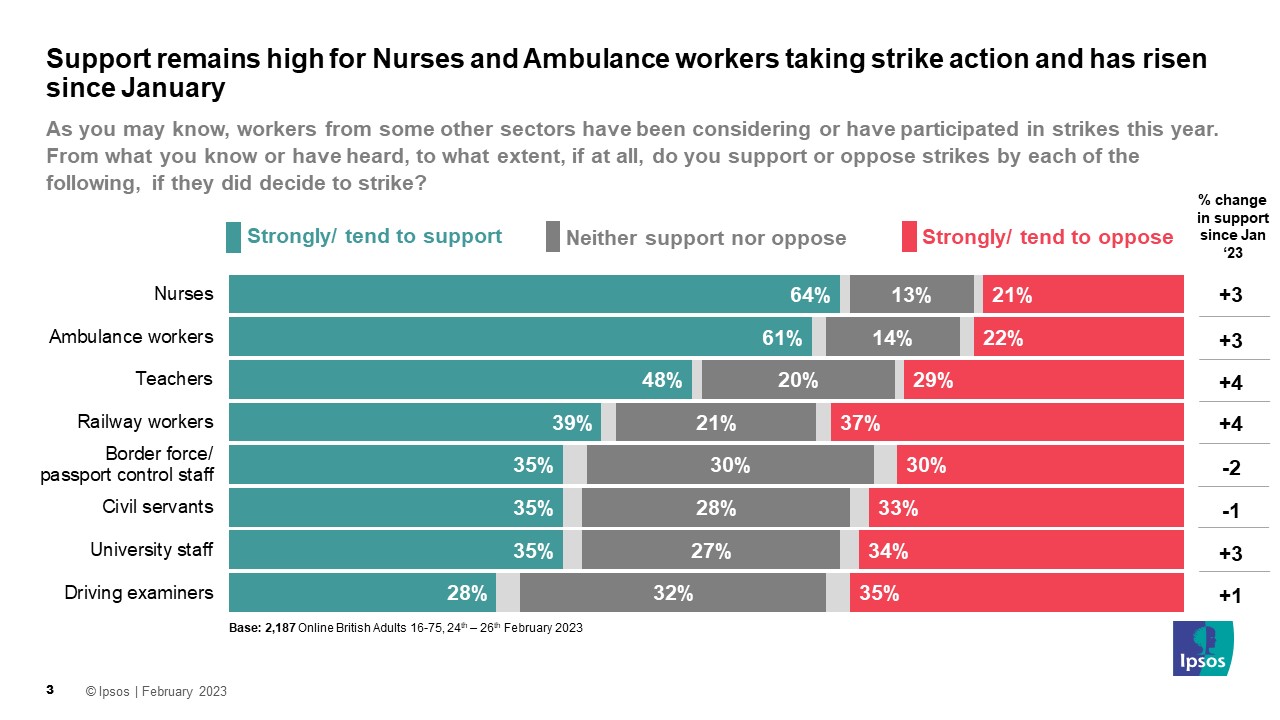
Despite 60% of parents / guardians supporting the strike action, many appear worried about the impact of the strikes on their child’s or children’s education. 43% are worried about their children catching up on schoolwork missed because of strike action and 40% are worried about exam results not reflecting their child’s or children’s ability because of missed work due to strikes. However, 40% and 41% are not worried respectively and the greatest level of parental concern is reserved for school funding rather than strikes. For example, 60% are worried about their children’s education because not enough money is spent on school or teachers. Just one in four (26%) are not worried about this.
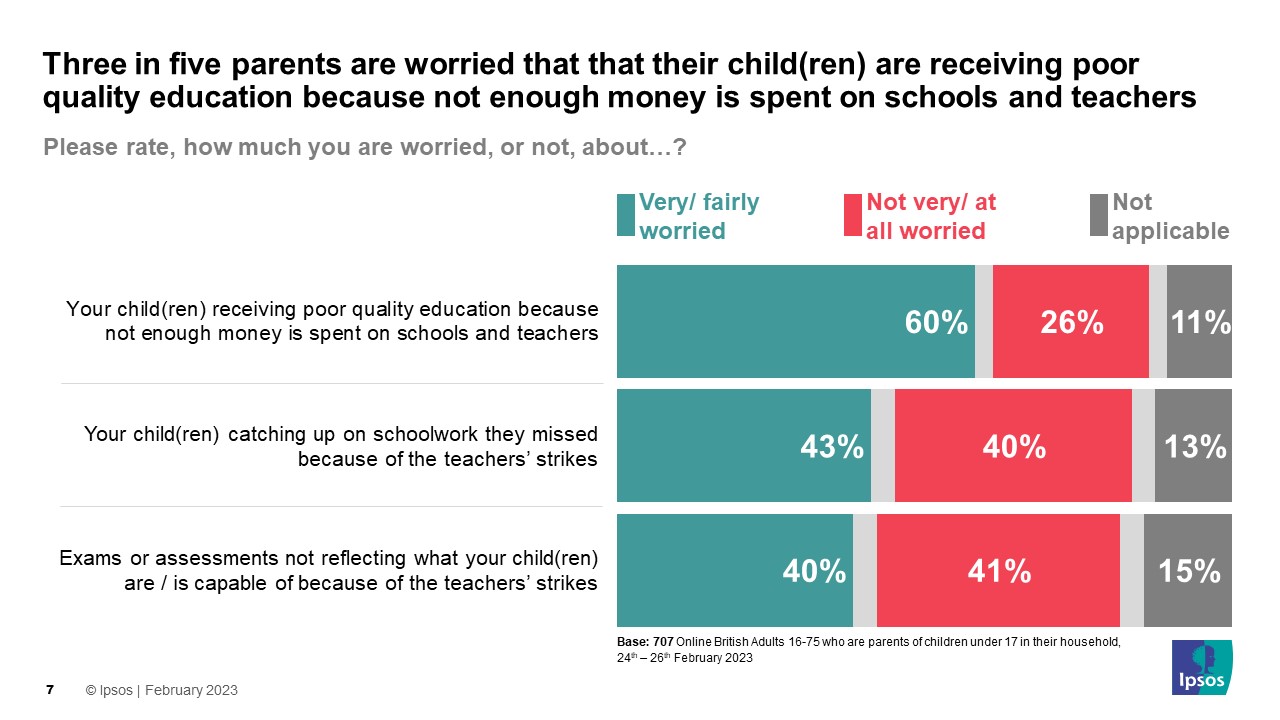
For working parents with children of school age, working from home is a common solution to childcare needs on the day of the strikes. 17% of working parents tell Ipsos they normally work from home on that day anyway, whilst a further 17% say they will work from home on that day when they normally wouldn’t. Another 17% say their children are old enough to look after themselves whilst 15% will rely on family members for childcare. 14% say they or their partner will take unpaid leave, whilst 13% say their partner is a stay-at-home parent that can cover childcare needs on the day of the strikes.
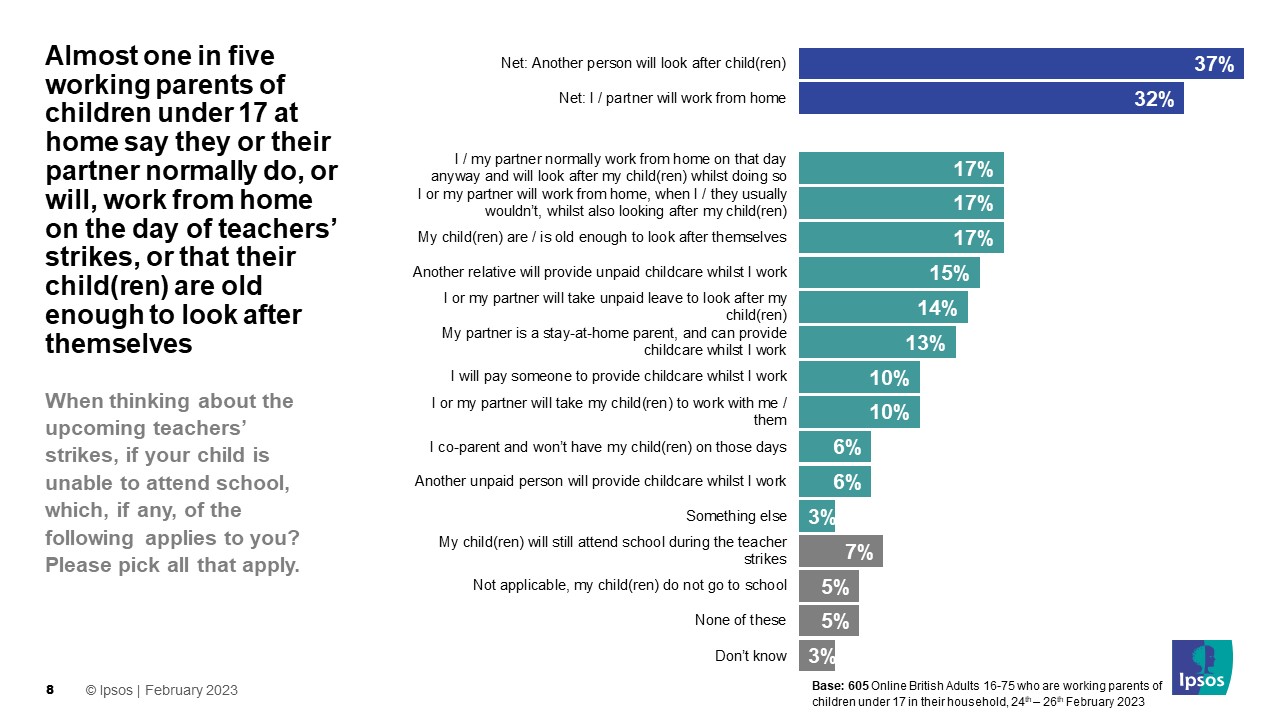
The public remain interested in the strikes, 72% say they are paying close attention to news stories about the subject - a similar proportion are following stories about the Russian invasion of Ukraine (73%). 88% are following the rising cost of living.
Government response to strikes
One in 5 say Rishi Sunak’s government is doing a good job at negotiating with trade unions to prevent public sector workers going on strike, almost half say they are performing poorly (48%). This has seen little change since January (17% good job, 51% bad job).
Opinion is split among 2019 Conservative voters, 30% say Sunak’s government are doing a good job while 31% disagree. Two-thirds of 2019 Labour voters say the current government is doing a bad job (66%).
Meanwhile, opinion is split as to whether a hypothetical Labour government led by Keir Starmer would do better. Around a third say they would do a better job (34%) or make no difference (33%). One in 5 say they would do a worse job (21%).
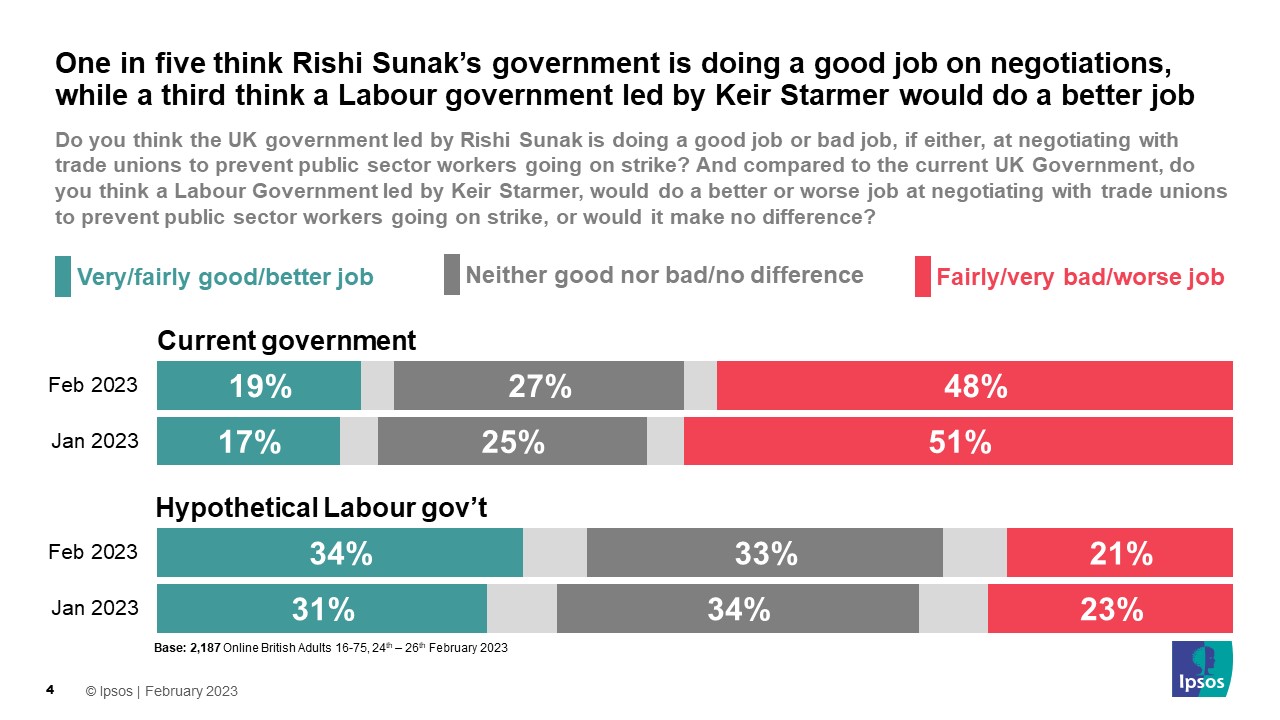
Keiran Pedley, Research Director at Ipsos said of the findings:
When we look at public support for potential strike action, we tend to find more sympathy for teachers than many other professions and that is reflected in this data too. Meanwhile, whilst many parents and guardians are concerned about the potential impact strikes might have on their child’s education, they are typically more concerned about the level of funding schools receive more generally.
Technical note:
- Ipsos interviewed a representative quota sample of 2,187 adults aged 16-75 in Great Britain. Interviews took place on the online Omnibus 24th-26th February 2023. Data has been weighted to the known offline population proportions. All polls are subject to a wide range of potential sources of error.



